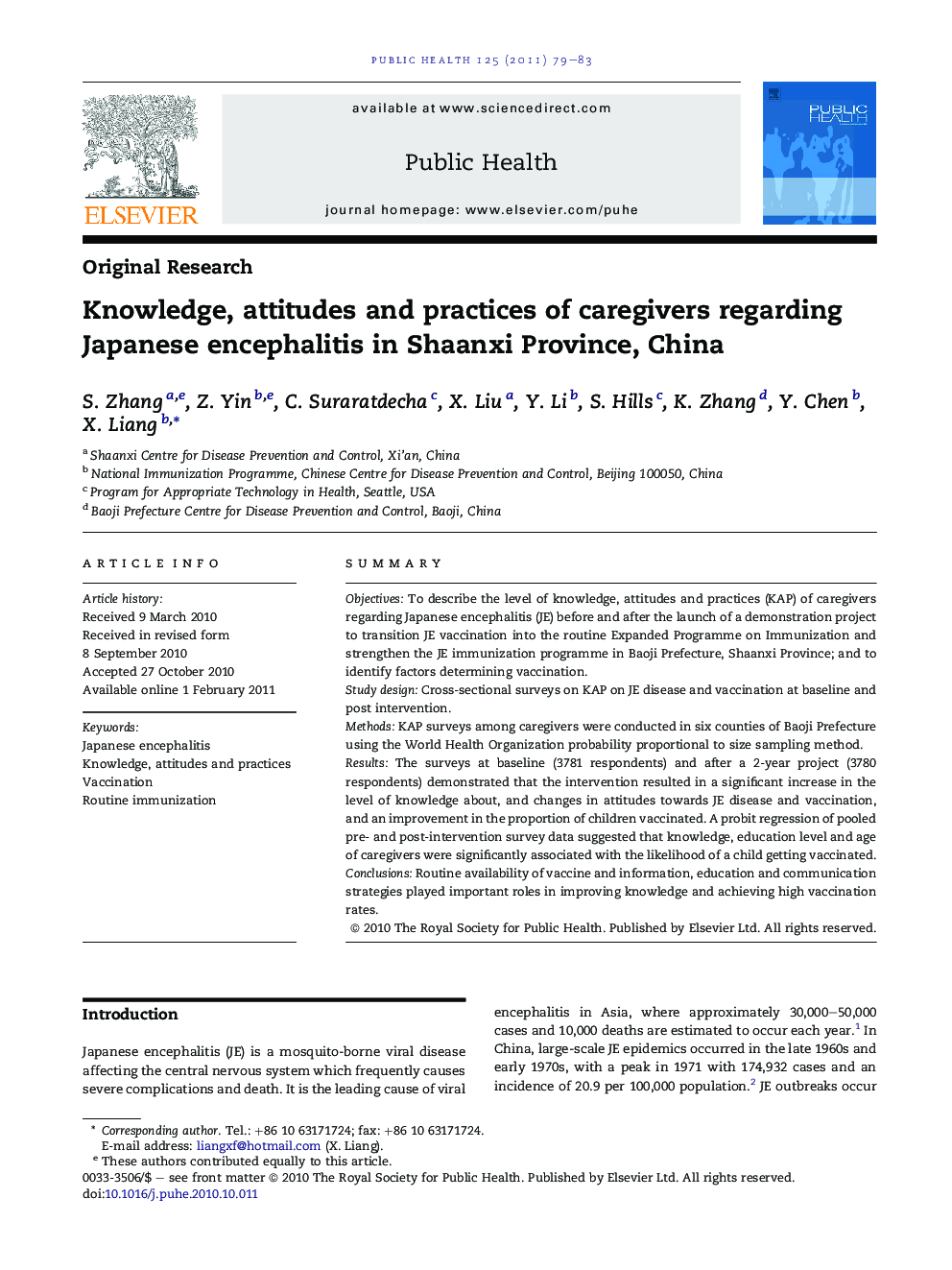| Article ID | Journal | Published Year | Pages | File Type |
|---|---|---|---|---|
| 1088235 | Public Health | 2011 | 5 Pages |
SummaryObjectivesTo describe the level of knowledge, attitudes and practices (KAP) of caregivers regarding Japanese encephalitis (JE) before and after the launch of a demonstration project to transition JE vaccination into the routine Expanded Programme on Immunization and strengthen the JE immunization programme in Baoji Prefecture, Shaanxi Province; and to identify factors determining vaccination.Study designCross-sectional surveys on KAP on JE disease and vaccination at baseline and post intervention.MethodsKAP surveys among caregivers were conducted in six counties of Baoji Prefecture using the World Health Organization probability proportional to size sampling method.ResultsThe surveys at baseline (3781 respondents) and after a 2-year project (3780 respondents) demonstrated that the intervention resulted in a significant increase in the level of knowledge about, and changes in attitudes towards JE disease and vaccination, and an improvement in the proportion of children vaccinated. A probit regression of pooled pre- and post-intervention survey data suggested that knowledge, education level and age of caregivers were significantly associated with the likelihood of a child getting vaccinated.ConclusionsRoutine availability of vaccine and information, education and communication strategies played important roles in improving knowledge and achieving high vaccination rates.
